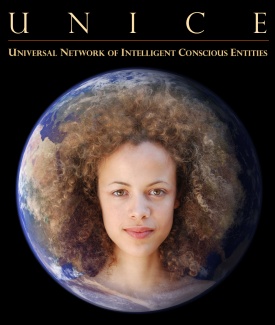Seed Topic: Proposed Voting Rights Amendment
This Seed Topic may only be edited by the author. Please go to Proposed Voting Rights Amendment for the collaborative topic on this subject. Please read the Guide for Editors before editing.
For the problems and solutions related to this proposed U.S. Constitutional Amendment see Voting Rights in the U.S..
[edit] Seed Topic: Proposed Voting Rights Amendment (Summary)
A Constitutional Amendment--being necessary to address a wide range of impediments to fair elections, held in place by antiquated, or purposefully inequitable policies--is hereby proposed:
Section 1: The right of the citizens of the United States to vote in any public election held in the jurisdiction in which the citizen resides, and to elect their leaders in an unrestricted, transparent, and representative manner, shall not be abridged. The right to vote cannot be denied to any citizen of voting age for any reason, including felons. [1]
Section 2: Article II, Section 1 of the Constitution referring to the Electoral College is amended to read: The executive power shall be vested in the President of the United States of America. He shall hold his office during the term of four years, and, together with the Vice President of the United States, chosen for the same term, shall be elected by a direct election of the citizens of the United States determined with ranked choice voting. A president may not be elected more than two terms. [2]
Section 3: Article II, Section of the Constitution referring to a president’s qualifications is amended to read: No person except a citizen of the United States, shall be eligible to the office of President; neither shall any person be eligible to that office who has not attained to the age of thirty-five years, and been fourteen years a resident within the United States. [3]
Section 4: Winners of all elections in single-member districts throughout the United States shall be determined with ranked choice voting.[4]
Section 5: Lobbying: No person or other entity may offer a government official any kind of donation, personal remuneration, or favor. A free, easily-accessible petition process, such as an interactive, independent public-policy answer-engine that takes into account the opinion of every person, shall be established in accordance with the 1st Amendment right to petition the government for redress of grievances. [5]
Section 6: Members of the House of Representatives shall be proportionately elected with proportional representation where possible. Districts shall be redrawn to contain no fewer than four representatives, except when limited by population, in which case there can be as few as two representatives. Each state shall have at least one District, and in the case of a single state District, the voting shall be by ranked choice voting. [6]
Section 7: Citizens of voting age, who are also residents of Washington D.C., shall have similar voting rights as any other U.S. citizen. The Twenty-third Amendment is repealed.[7]
Section 8: Private campaign financing shall be replaced with limited public campaign funding regulated in such a way that voters may easily understand the candidates and the issues presented by them. All candidates are required to fill out a disclosure on a wide slate of positions, as well as their background and experience which shall be published on websites accessible to all potential voters. An efficient, ranked choice voting process shall winnow candidates to reasonable numbers on the final ballot, but in no case more than five candidates per seat. [8]
Section 9: Media outlets using the public airwaves must provide at no cost to the public or the candidates, commercial-free debates and other information about the candidates provided to them by an independent election board. [9]
Section 10: Congress shall have the power to enforce these articles by appropriate legislation.
See Voting Rights in the U.S. for more information
[edit] References
- ↑ See Felon Voting, pros and cons. felonvoting.procon.org.
- ↑ Black, Eric, “10 reasons why the Electoral College is a problem,” MinnPost, October 16, 2012.
- ↑ This would leave it up to the voters to decide if a candidate’s origin has anything to do with their qualifications.
- ↑ Arth, Michael E., Democracy and the Common Wealth: Breaking the Stranglehold of the Special Interests. Chapter 15: “Replace Winner-Take-All,” Golden Apples Media, 2010. pp. 108-117.
- ↑ Arth, Michael E., Democracy and the Common Wealth: Breaking the Stranglehold of the Special Interests. Chapter 6: “Take Money Out of Politics,” Golden Apples Media, 2010. pp. 81-82
- ↑ Arth, Michael E., Democracy and the Common Wealth: Breaking the Stranglehold of the Special Interests. Chapter 15: “Replace Winner-Take-All,” Golden Apples Media, 2010. pp. 108-117.
- ↑ Ending the Electoral College will make the 23rd Amendment’s reference to the electors obsolete.
- ↑ Arth, Michael E., Democracy and the Common Wealth: Breaking the Stranglehold of the Special Interests. Chapter 6: “Take Money Out of Politics,” Golden Apples Media, 2010. pp. 76-85.
- ↑ Arth, Michael E., Democracy and the Common Wealth: Breaking the Stranglehold of the Special Interests. Chapter 6: “Take Money Out of Politics,” Golden Apples Media, 2010. pp. 76-85.
